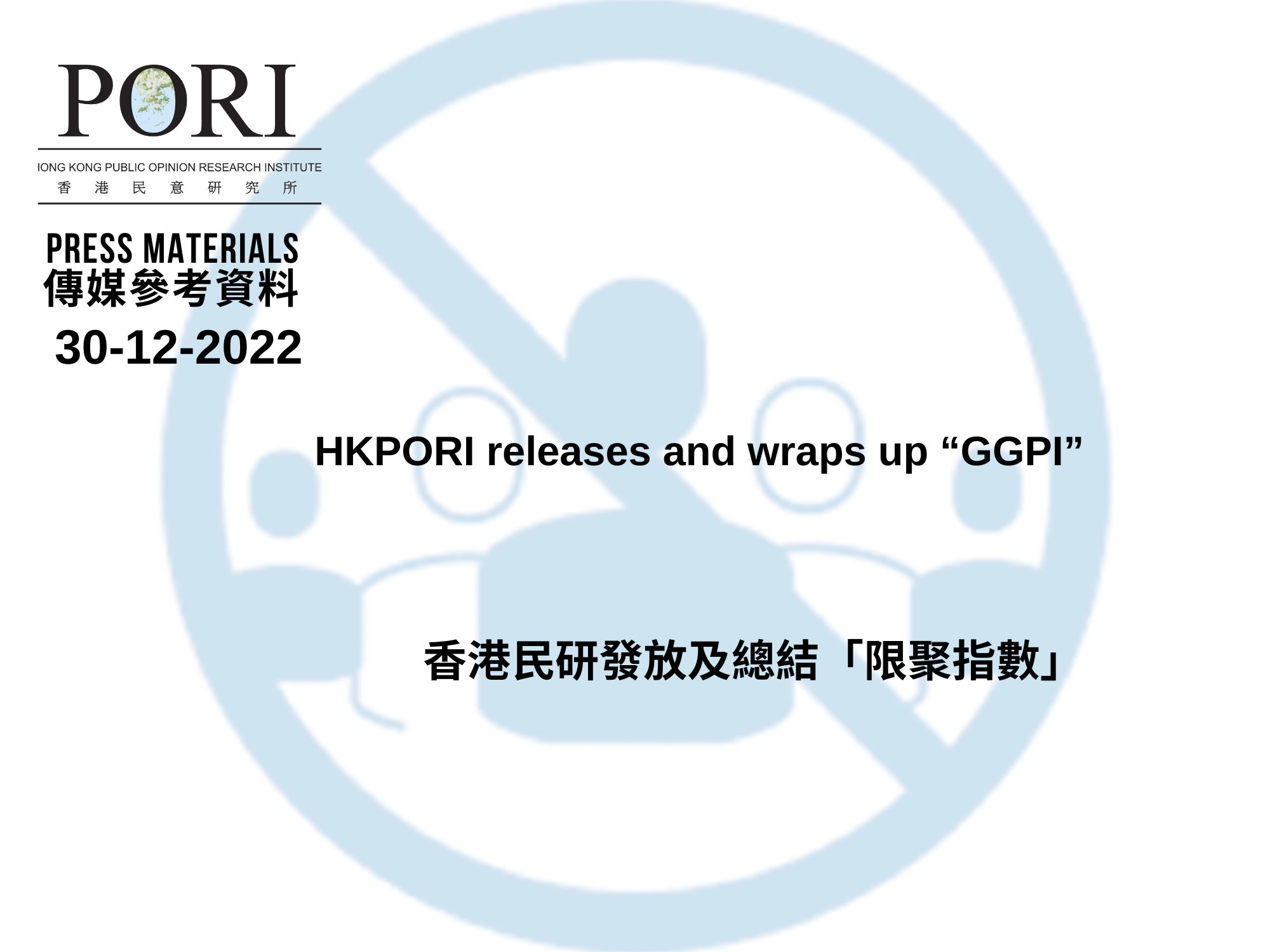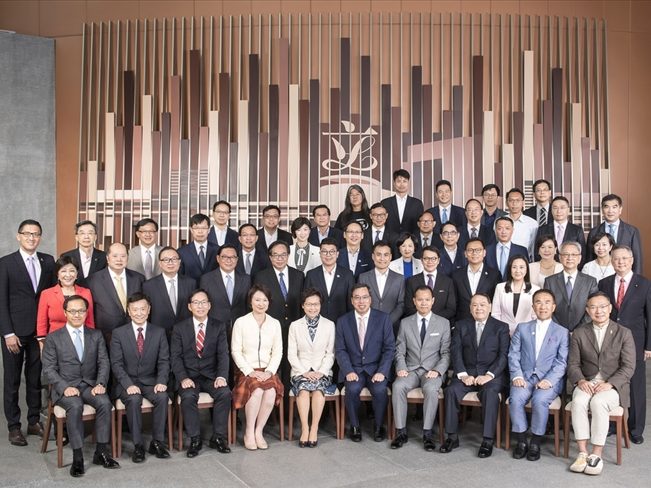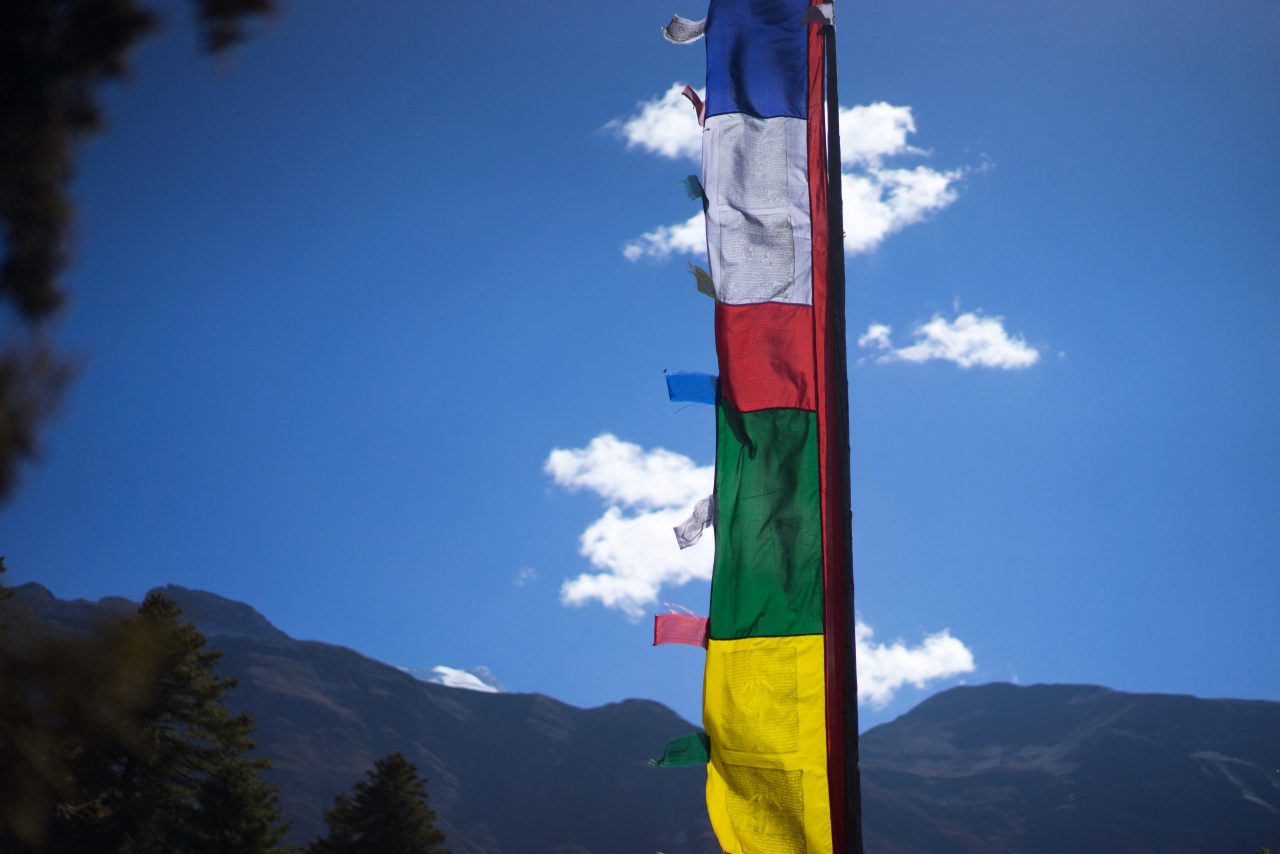May 05, 2021
Hong Kong Public Opinion Research Institute Press Conference – Press Materials
Detailed Findings
POP releases popularity of Legislative Councillors
and survey results on Taiwan and Tibetan issues
Special Announcement
The predecessor of Hong Kong Public Opinion Program (HKPOP) was The Public Opinion Programme at The University of Hong Kong (HKUPOP). “POP” in this release can refer to HKPOP or its predecessor HKUPOP.
Abstract
POP successfully interviewed 1,003 and 1,004 Hong Kong residents respectively by random telephone surveys conducted by real interviewers in April. Our survey shows that Starry Lee, Regina Ip, Priscilla Leung, Paul Tse, Cheng Chung-tai and Elizabeth Quat are the six Legislative Councillors that top people’s mind now. In terms of rating, Regina Ip tops the list with 39.8 marks. Paul Tse and Starry Lee rank the 2nd and 3rd with 39.5 and 38.6 marks respectively. Priscilla Leung and Cheng Chung-tai follow with 32.9 and 28.3 marks respectively, whereas Elizabeth Quat obtains a rating of 32.4 marks, but is dropped due to her relatively low recognition rate. The ratings of Starry Lee and Priscilla Leung have increased significantly by 6.4 and 7.1 marks compared with the last survey, while that of Paul Tse has registered record low since he was first rated in 2010. Regarding Taiwan and Tibetan issues, Hong Kong people’s net confidence in the ultimate reunification across the strait stands at negative 18 percentage points, which has increased significantly by 18 percentage points from half a year ago, registering a record high since 2014. Regarding international space, net support in Taiwan’s rejoining the United Nations stands at positive 6 percentage points, which has dropped significantly by 20 percentage points from half a year ago, registering a record low since 2011. As for the independence of Taiwan, net support stands at negative 18 percentage points, which has dropped significantly by 18 percentage points from half a year ago. Meanwhile, net value in believing “one country, two systems” was applicable to Taiwan stands at negative 23 percentage points, which has increased significantly by 22 percentage points from half a year ago. Regarding Tibetan issues, net support in the independence of Tibet stands at negative 38 percentage points, which has dropped significantly by 25 percentage points from half a year ago. The effective response rate of the rating survey is 54.5%. The maximum sampling error of percentages is +/-4%, that of net values is +/-7% and that of ratings is +/-3.2 at 95% confidence level.
Contact Information
| Naming stage of Legislative Councillors |
Rating stage of Legislative Councillors and Survey on Taiwan and Tibetan issues |
||
| Date of survey | : | 7-9/4/2021 | 19-22/4/2021 |
| Sample size[1] | : | 1,003 (including 508 landline and 495 mobile samples) | 1,004 (including 498 landline and 506 mobile samples) |
| Effective response rate | : | 50.1% | 54.5% |
| Survey method | : | Random telephone survey conducted by real interviewers | |
| Target population | : | Cantonese-speaking Hong Kong residents aged 18 or above | |
| Sampling error[2] | : | Sampling error of percentages not more than +/-4%, that of net values not more than +/-7% and that of ratings not more than +/-3.2 at 95% conf. level | |
| Weighting method | : | Rim-weighted according to figures provided by the Census and Statistics Department. The gender-age distribution of the Hong Kong population came from “Mid-year population for 2020”, while the educational attainment (highest level attended) distribution and economic activity status distribution came from “Women and Men in Hong Kong – Key Statistics (2020 Edition)”. | |
Popularity of Legislative Councillors
In the naming survey, respondents could name, unprompted, up to 10 councillors whom they knew best. Starry Lee, Regina Ip, Priscilla Leung, Paul Tse, Cheng Chung-tai and Elizabeth Quat were the top 6 councillors mentioned most frequently, they therefore entered the rating survey. In the rating survey, respondents were asked to rate individual councillors using a 0-100 scale, where 0 indicates absolutely no support, 100 indicates absolute support and 50 means half-half. After calculation, the bottom councillor in terms of recognition rate was dropped; the remaining 5 were then ranked according to their support ratings to become the top 5 Legislative Councillors. Recent ratings of the top 5 Legislative Councillors are summarized below, in descending order of support ratings[3]:
| Date of survey | 7-8/1/20 | 1-2/4/20 | 19-20/10/20 | 19-22/4/21 | Latest change | |
| Sample size[4] | 507 | 500 | 504 | 572-658 | — | |
| Response rate | 70.4% | 68.1% | 58.3% | 54.5% | — | |
| Latest findings[5] | Finding | Finding | Finding | Finding & error | Recognition rate | — |
| Regina Ip | — | — | — | 39.8+/-2.7{1} | 93.2% | — |
| Paul Tse | — | — | — | 39.5+/-2.5{2} | 84.5% | — |
| Starry Lee | 28.6{5} | 32.8{5}[6] | 32.2{4} | 38.6+/-2.8{3} | 91.1% | +6.4[6] |
| Priscilla Leung | — | — | 25.9{5} | 32.9+/-2.9{4} | 81.7% | +7.1[6] |
| Cheng Chung-tai | — | — | — | 28.3+/-2.6{5} | 74.0% | — |
| Elizabeth Quat | — | — | — | 32.4+/-3.2[7] | 67.5% | — |
| Roy Kwong | 64.3{1}[6] | 60.4{1} | 57.3{1} | — | — | — |
| James To | — | — | 46.4{2} | — | — | — |
| Claudia Mo | 54.0{4}[6] | 50.5{4} | 44.7{3}[6] | — | — | — |
| Alvin Yeung | 56.7[7] | 53.5{2} | 44.8[6] [7] | — | — | — |
| Eddie Chu | — | 52.6{3} | — | — | — | — |
| Jeremy Tam | — | 56.1[7] | — | — | — | — |
| Lam Cheuk-ting | 56.6{2} | — | — | — | — | — |
| Tanya Chan | 56.5{3} | — | — | — | — | — |
The latest survey shows that Regina Ip is the most popularly supported councillor, attaining 39.8 marks. Paul Tse and Starry Lee rank the 2nd and 3rd with 39.5 and 38.6 marks respectively. Priscilla Leung and Cheng Chung-tai follow with 32.9 and 28.3 marks respectively, whereas Elizabeth Quat obtains a rating of 32.4 marks, but is dropped due to her relatively low recognition rate. The ratings of Starry Lee and Priscilla Leung have increased significantly by 6.4 and 7.1 marks compared with the last survey, while that of Paul Tse has registered record low since he was first rated in 2010.
It should be noted, however, that our list of “top 5” only includes LegCo members who are best known to the public, ranked according to their support ratings. Other councillors may well have very high or low support ratings, but because they are relatively less well-known, they are not included in our final list.
Taiwan and Tibetan Issues
People’s latest views towards various Taiwan and Tibetan issues are summarized below:
| Date of survey | 7-11/1/19 | 2-8/7/19 | 3-8/1/20 | 19-22/10/20 | 19-22/4/21 | Latest change |
| Sample size[8] | 505-550 | 575-648 | 585-657 | 593-629 | 592-613 | — |
| Response rate | 55.6% | 67.4% | 72.0% | 62.2% | 54.5% | — |
| Latest findings | Finding | Finding | Finding | Finding | Finding & error | — |
| Confidence in cross-strait reunification | 28%[9] | 27% | 19%[9] | 26%[9] | 33+/-4% | +7%[9] |
| No confidence in cross-strait reunification | 60% | 65% | 72%[9] | 61%[9] | 51+/-4% | -11%[9] |
| Net confidence | -33%[9] | -38% | -53%[9] | -36%[9] | -18+/-7% | +18%[9] |
| Taiwan rejoining the United Nations: Support rate | 54% | 57% | 63% | 53%[9] | 44+/-4% | -9%[9] |
| Taiwan rejoining the United Nations: Opposition rate | 29% | 27% | 26% | 27% | 38+/-4% | +11%[9] |
| Net support | 25% | 31% | 36% | 26%[9] | 6+/-7% | -20%[9] |
| Taiwan independence: Support rate | 35% | 44%[9] | 48% | 41%[9] | 32+/-4% | -9%[9] |
| Taiwan independence: Opposition rate | 50% | 44%[9] | 39%[9] | 41% | 50+/-4% | +9%[9] |
| Net support | -16% | 0%[9] | 9% | 0% | -18+/-7% | -18%[9] |
| Believe “one country, two systems” is applicable to Taiwan | 29%[9] | 27% | 21%[9] | 18% | 27+/-4% | +8%[9] |
| Believe “one country, two systems” is not applicable to Taiwan | 59%[9] | 63% | 66% | 63% | 50+/-4% | -14%[9] |
| Net value of applicability | -30%[9] | -36% | -45% | -45% | -23+/-7% | +22%[9] |
| Tibet independence: Support rate | 19% | 26%[9] | 34%[9] | 28% | 19+/-3% | -9%[9] |
| Tibet independence: Opposition rate | 58% | 53% | 46%[9] | 41% | 57+/-4% | +16%[9] |
| Net support | -39% | -27%[9] | -13%[9] | -13% | -38+/-7% | -25%[9] |
The latest survey reveals that 33% of Hong Kong people interviewed were confident in the ultimate reunification across the strait while 51% expressed no confidence. Net confidence stands at negative 18 percentage points, which has increased significantly by 18 percentage points from half a year ago, registering a record high since 2014. Regarding international space, 44% supported Taiwan’s rejoining the United Nations while 38% opposed that. Net support stands at positive 6 percentage points, which has dropped significantly by 20 percentage points from half a year ago, registering a record low since 2011. As for the independence of Taiwan, 32% supported Taiwan’s independence while 50% opposed it. Net support stands at negative 18 percentage points, which has dropped significantly by 18 percentage points from half a year ago. Meanwhile, 27% believed “one country, two systems” was applicable to Taiwan while 50% believed it was not. Net value of applicability stands at negative 23 percentage points, which has increased significantly by 22 percentage points from half a year ago. Regarding Tibetan issues, 57% of Hong Kong people interviewed opposed the independence of Tibet whereas 19% showed support. Net support stands at negative 38 percentage points, which has dropped significantly by 25 percentage points from half a year ago.
Opinion Daily
In 2007, POP started collaborating with Wisers Information Limited whereby Wisers supplies to POP a record of significant events of that day according to the research method designed by POP. These daily entries would then become “Opinion Daily” after they are verified by POP.
For some of the polling items covered in this press release, the previous survey was conducted from 19 to 20 October, 2020 while this survey was conducted from 19 to 22 April, 2021. During this period, herewith the significant events selected from counting newspaper headlines and commentaries on a daily basis and covered by at least 25% of the local newspaper articles. Readers can make their own judgment if these significant events have any impacts to different polling figures.
| 16/4/21 | 9 famous democrats are convicted and jailed for 8.18 assembly. |
| 15/4/21 | The government holds “National Security Education Day”. |
| 10/4/21 | Alibaba is fined RMB 18.2 billion for violating anti-monopoly law. |
| 30/3/21 | NPCSC passes amendments to the Basic Law to amend Hong Kong’s electoral system. |
| 25/3/21 | Chinese consumers start a boycott campaign against international brands refusing to use Xinjiang cottons. |
| 19/3/21 | China and US officials meet in Alaska. |
| 17/3/21 | The Hong Kong and Macau Affairs Office and the Liaison Office hold seminars on amending Hong Kong’s electoral system. |
| 11/3/21 | The National People’s Congress passes bill on amending Hong Kong’s electoral system. |
| 6/3/21 | Vice-Premier of the State Council Han Zheng attend CPCC joint group meeting about Hong Kong and Macau. |
| 5/3/21 | The fourth session of the 13th National People’s Congress begins, Li Keqiang delivers the government work report. |
| 4/3/21 | The fourth session of the 13th Chinese People’s Political Consultative Conference begins. |
| 1/3/21 | The court reviews 47 democrats’ bail application overnight. |
| 28/2/21 | 47 democrats are charged with “conspiracy to commit subversion”. |
| 23/2/21 | The government proposes amendments to laws to regulate oath-taking by public officers, compiling a negative list of behaviours, violators of which will be disqualified. |
| 22/2/21 | Xia Baolong says the Central Government will change the electoral system in Hong Kong to make sure it will be “patriots ruling Hong Kong”. |
| 19/2/21 | The government releases the Governance and Management of RTHK Review Report, and announces that Li Pak-chuen will replace Leung Ka-wing as the Director of Broadcasting. |
| 9/2/21 | The Court of Final Appeal sets aside the High Court’s decision to grant bail to Jimmy Lai. |
| 5/2/21 | Luo Huining holds liaison office’s annual spring reception online and delivers a speech. |
| 4/2/21 | Carrie Lam attends the Legislative Council question-and-answer session. |
| 29/1/21 | The British government announces details of migration using BNO visa; the Chinese and Hong Kong governments announce they will no longer recognise BNO passports. |
| 27/1/21 | Carrie Lam reports to Xi Jinping on her work via video conferencing. |
| 20/1/21 | Queen’s Counsel David Perry steps down as prosecutor in an assembly case involving democrats. |
| 13/1/21 | Brazil authority announces that the general efficacy of Sinovac vaccine is 50.4%. |
| 6/1/21 | Police arrests 53 democrats involved in the pro-democracy primaries who allegedly violated the national security law. |
| 5/1/21 | Geoffrey Ma says details and justifications are needed to call for judicial reform. |
| 31/12/20 | The Court of Final Appeal grants leave to appeal to the Department of Justice. Jimmy Lai is remanded in custody. |
| 30/12/20 | Ten among the 12 Hong Kong people case are sentenced to 7 months to 3 years in prison, while two minors are transferred to Hong Kong. |
| 25/12/20 | Jimmy Lai is granted bail, but barred from leaving home, giving interviews and publishing articles. |
| 23/12/20 | The government sets up indemnity fund for vaccine and lets citizens choose which type of vaccine to take. |
| 12/12/20 | Jimmy Lai is additionally charged with “collusion with a foreign country or with external elements to endanger national security”. |
| 3/12/20 | Jimmy Lai is denied bail and remanded in custody. |
| 2/12/20 | Former Demosistō member Joshua Wong, Ivan Lam and Agnes Chow are sentenced to 7 to 13.5 months in prison. |
| 30/11/20 | The government tightens anti-epidemic measures and sets up a hotline for reporting violations. |
| 26/11/20 | The Education Bureau introduces reforms to liberal studies. |
| 21/11/20 | Police arrests 3 people including an online radio host who allegedly violated the national security law by providing financial assistance to secession. |
| 19/11/20 | The High Court rules that police officers not displaying their identification numbers violated the Bill of Rights. |
| 17/11/20 | Carrie Lam and Zhang Xiaoming deliver speech at the Basic Law 30th Anniversary Legal Summit. |
| 12/11/20 | Media continues to report on the disqualification of democrats in LegCo. |
| 11/11/20 | NPCSC disqualifies 4 democrats in LegCo. |
| 9/11/20 | Sources say NPCSC will disqualify democrats in LegCo. |
| 6/11/20 | Vice-Premier of the State Council Han Zheng meets Carrie Lam. |
| 1/11/20 | Police arrests 6 democrats who allegedly violated the LegCo Powers and Privileges Ordinance. |
| 31/10/20 | Seven defendants accused of rioting on 31 August 2019 are found not guilty. |
| 29/10/20 | The fifth plenary session of the Communist Party of China Central Committee passes the 15th Five-Year Plan. |
| 23/10/20 | Xi Jinping attends anniversary event of the Korean War and delivers a speech. |
Data Analysis
Regarding the popularity of Legislative Councillors, Starry Lee, Regina Ip, Priscilla Leung, Paul Tse, Cheng Chung-tai and Elizabeth Quat are the six councillors that top people’s mind now. In terms of rating, Regina Ip tops the list with 39.8 marks. Paul Tse and Starry Lee rank the 2nd and 3rd with 39.5 and 38.6 marks respectively. Priscilla Leung and Cheng Chung-tai follow with 32.9 and 28.3 marks respectively, whereas Elizabeth Quat obtains a rating of 32.4 marks, but is dropped due to her relatively low recognition rate. The ratings of Starry Lee and Priscilla Leung have increased significantly by 6.4 and 7.1 marks compared with the last survey, while that of Paul Tse has registered record low since he was first rated in 2010.
Regarding Taiwan and Tibetan issues, Hong Kong people’s net confidence in the ultimate reunification across the strait stands at negative 18 percentage points, which has increased significantly by 18 percentage points from half a year ago, registering a record high since 2014. Regarding international space, net support in Taiwan’s rejoining the United Nations stands at positive 6 percentage points, which has dropped significantly by 20 percentage points from half a year ago, registering a record low since 2011. As for the independence of Taiwan, net support stands at negative 18 percentage points, which has dropped significantly by 18 percentage points from half a year ago. Meanwhile, net value in believing “one country, two systems” was applicable to Taiwan stands at negative 23 percentage points, which has increased significantly by 22 percentage points from half a year ago. Regarding Tibetan issues, net support in the independence of Tibet stands at negative 38 percentage points, which has dropped significantly by 25 percentage points from half a year ago.


